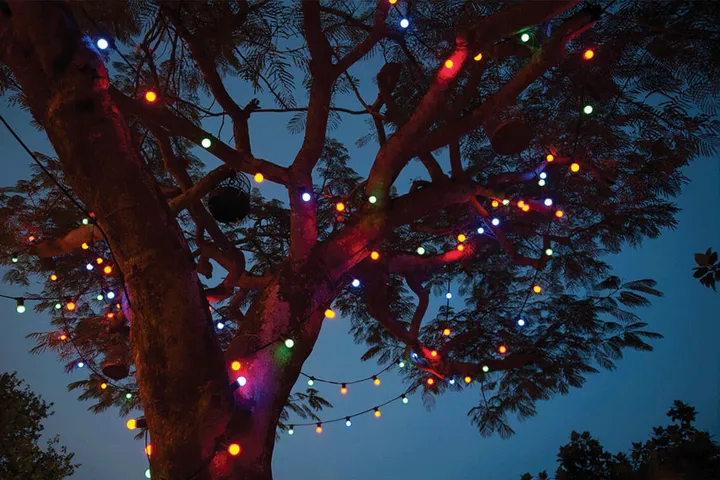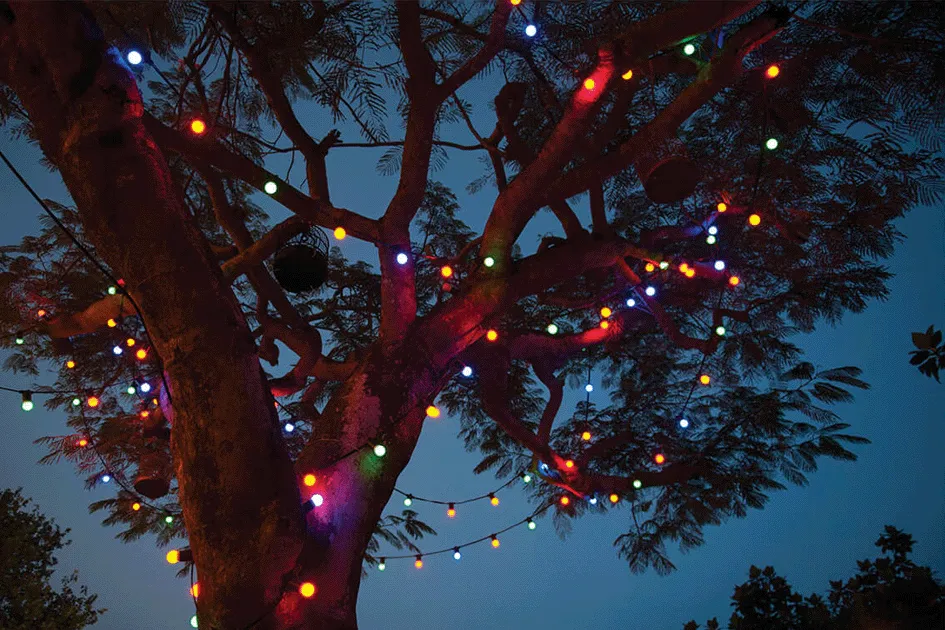A pastor really ought to believe in God; it usually works best that way.
You can imagine, then, the terror I felt when my darkest question surfaced. The sinister assault slithered out from the shadows and dug into my heart like a rattler sinking fangs into flesh. Is God real?
 Photography by Franck Bohbot
Photography by Franck Bohbot
For the first decades of my life, faith came easy. My upbringing was comfortable and, in many ways, sheltered. Immersed in the church, I could pull out a pat answer for most every dilemma. I had encountered little pain or disappointment and enjoyed friendships with almost no one who viewed God and the world differently from me. Nothing yet had forced me to grapple with prayers that seemed unanswered or with a God who went silent and did not behave according to my pre-set requirements. The God I thought I knew was predictable and always arrived on cue. This God conformed to my sensibilities and whims, made sense within my comfortable framework. Essentially, I managed to concoct a God who did not require any faith.
However, a series of disappointments and an extended, excruciating season of spiritual disorientation prompted me to ask if God was real. It forced me to return to the Scriptures and to the witness of Christians across history. I discovered a God far wilder than I imagined, one who would not be contained within a simple, easily digestible formula. I found a God who drew near to His people with tenderness but who also thundered from the mountain. I encountered a Jesus who wept and grieved but who also exhibited righteous fury. I found a God who resisted human machinations, who controverted expectations, and who (in one way or another) confused most everyone.
Further, I discovered how God at times holds paradoxical truths in tension. God chooses us, but we also choose God. The future is entirely in His hands, but our choices really do matter. God loves without measure or restraint, yet He at times grows angry. He is a good Father who promises gentle protection but also insists He will lead His people through (not around) the valley of the shadow of death. I wonder if these were the dilemmas that pushed the psalmist toward lament: “When I tried to understand all this, it troubled me deeply” (Ps. 73:16 NIV).
To complicate matters, it surprised me how little energy Jesus, the apostles, or early Christians gave to smoothing out these logical quandaries. It is good to discover clarity whenever it is available (and Scripture does provide us with much solid ground), but I found, over and over, how Jesus never promised His followers they would always experience the sensation of iron-clad certainty. Rather, Jesus called all to obedient faith, to risk. He called us to enact courage, to take up our questions and our bewilderment and follow Him.
In Marilynne Robinson’s novel Home, her main character—a pastor named John Ames—makes peace with how many mysteries elude his grasp. “I’m not going to apologize for the fact that there are things I don’t understand,” Ames says. “I’d be a fool if I thought there weren’t. And I’m not going to make nonsense of a mystery, just because that’s what people always do when they try to talk about it. Always. And then they think the mystery itself is nonsense. Conversation of this kind is a good deal worse than useless. In my opinion.” If we are human and if we are honest, we will acknowledge the very real limitations to our knowledge.
Gathered around the breakfast table recently, our family read a gospel story recounting how difficult it was for the religious leaders to trust Jesus when His teachings were so odd and out of sync with how they’d always perceived the world. Our younger son gave voice to the question we all must face sooner or later: “But how do we know if what Jesus said is true?” This foundational concern places us in exactly the same position as the first disciples. It is remarkable how often we grow agitated or fearful when someone attempts to grapple with Jesus’ strange, confusing teachings. His own disciples were often befuddled or hesitant. Most of them eventually gained firm conviction, but they endured a tumultuous road to get there.
As our breakfast conversation continued, my son expanded on his quandary: “But Dad, how do I believe in God if I can’t see Him?” In our modern world, this seems to be one of our great dilemmas: How do I put faith in someone who is not testable, observable—someone I cannot secure with my hands or grasp fully with my mind? While science has given us innumerable benefits, it has also hampered our ability to understand realities that refuse to be contained by data and experimentation. Scholar Philip Sherrard observed how “modern thought, with its distrust of anything that escapes rational analysis, has practically eliminated the word ‘soul’ from its vocabulary.”
In contrast, early Christians were familiar with another way of knowing truth—one centering on our communion with God. These Christians knew that there were certain truths we must discover through divine revelation and through our deep encounters with the Holy One.
Some things you just know. You can’t prove them. You can’t explain them. You can’t strip them bare and plop them on a cold, steel plate for probing under a high-powered microscope. There is no apparatus that allows you to break them down, finger through their components and catalog all your findings. Such things simply are. The churning in your stomach signals the strange elixir called love. Krispy Kreme donuts grabbed while the neon sign flashes “Hot Doughnuts Now” taste far superior to those pulled from the greasy glass bins at the convenience store. A mother has a gut-wrenching intuition her child is in trouble.
Some things you just know.

We are immersed in deep mysteries. If we truly are the Creator’s image bearers rather than merely materialist particles floating in a soupy universe, and if the Spirit’s life-giving breath really does sustain our very being, then we should expect inexplicable realities to be woven into the fabric of our existence. As essayist Wendell Berry says, “We are alive within mystery, by miracle. We have more than we can know. We know more than we can say.” The simple fact that we live and breathe and muse and create and love in God’s splendid and expansive world exudes a mysterious joy. We couldn’t possibly comprehend all these generous wonders, but we can receive them. We can trust them and be thankful for them.
I think of this mysterious sphere of human experience as something like twilight, the luminous dance between night and day. This twilight space is where poets, dreamers, prophets, and lovers find themselves most at home. They know truths, but what they know isn’t limited to what they see—at least not with the eyes most of us are accustomed to trusting. These spaces are pregnant with mystery.
Kathleen Norris tells us that “the discipline of poetry teaches poets, at least, that they often have to say things they can’t pretend to understand.” Of course, large portions of Scripture arrive as poetry, inviting us to hear God afresh, outside our linear confines. In these twilight places, we practice a way of knowing that our language can’t quite capture and that our limited vocabulary can’t entirely describe. The Bible has a word for this: faith. As finite beings, how could we ever expect to encounter the triune God and not lose our equilibrium? Reading God’s own self-description, why should we be surprised when we find ourselves perplexed?
“My thoughts are not your thoughts, nor are your ways My ways,” declares the Lord. “For as the heavens are higher than the earth, so are My ways higher than your ways and My thoughts than your thoughts” (Isa. 55:8-9).
We encounter realities too complex for our minds, too broad for our imaginations, because there is only One who holds all knowledge. We are not God and cannot fully comprehend Him. This is why Augustine of Hippo insisted that if we ever arrive at a place where we believe we fully understand God, we can rest assured that whatever we understand is, in fact, not God.
The question is whether or not we will embrace this twilight place. Will we insist on mere precision and lose the nuance, the harmony, the deeper shades of grace? This is no demand to abandon solid ground or to haphazardly dismiss rationality and good common sense. God has given us our minds and charged us to “always be prepared to give an answer to everyone who asks ... the reason for the hope that [we] have” (1 Peter 3:15 NIV). Rather, this invitation simply pushes us beyond our comfort so that God may offer us something more.
To embrace the twilight requires risk, as any act of faith does. When Jesus called His disciples to follow, He said they had to leave all they knew and embark on a daring undertaking with no security other than the assurance that it was God Himself who beckoned them forward. If God is daring and bold and free, if God skirts the wild edges, then following Him means we must make friends with hazard, uncertainty, and perplexing tensions. We must resist our demand for the emotional comfort of absolute certitude. We must surrender to the fact that even as we seek to understand God’s truth, the ways of His kingdom will never make total rational sense within our limited understanding. In other words, we will have to trust God.
Most things of deep value will require us, at some point, to venture a risk. They will require that we relinquish our addiction to control and step into the unknown. God calls us into places requiring courageous faith, places of profound mysteries, because the God who is above and beyond us calls us to Himself.





